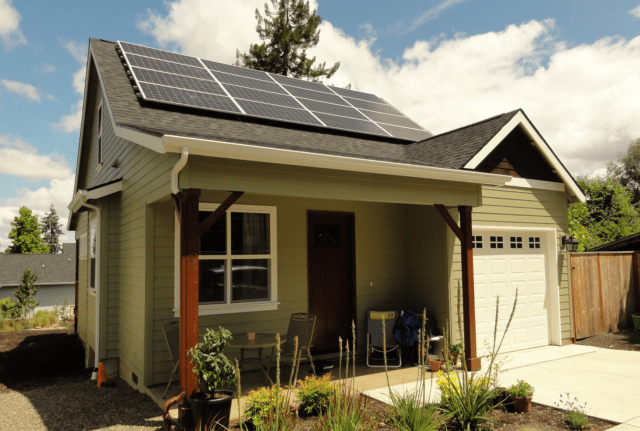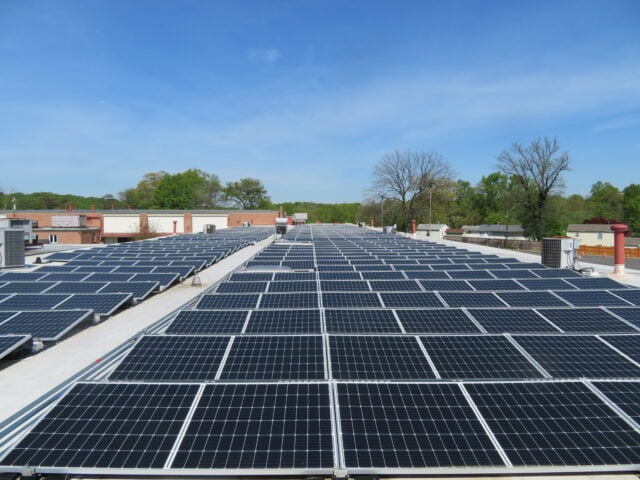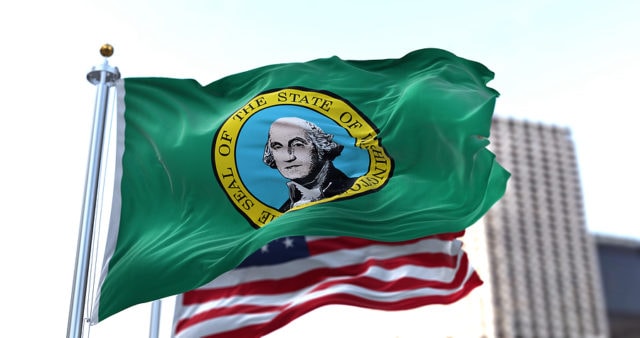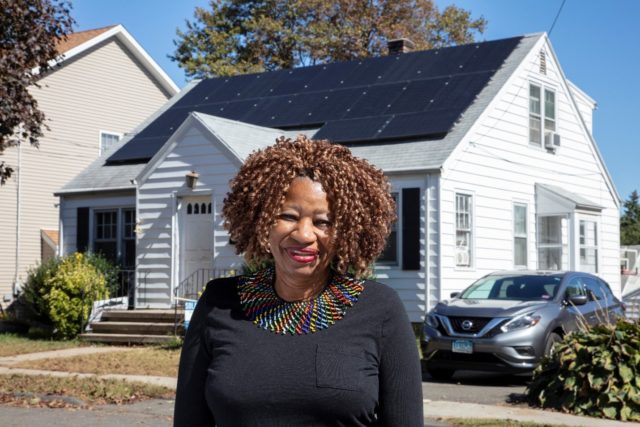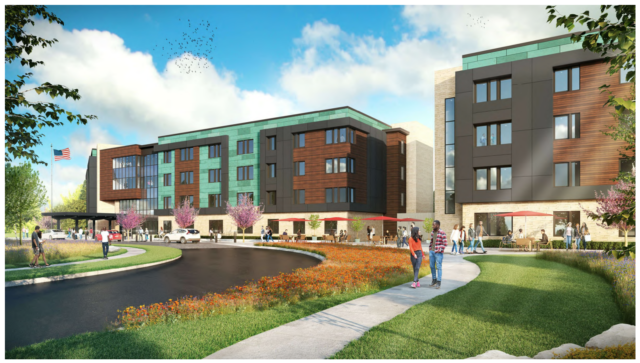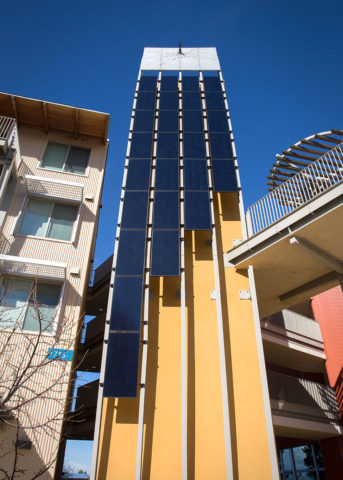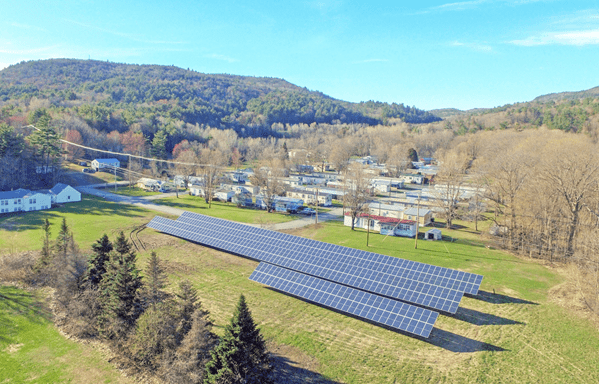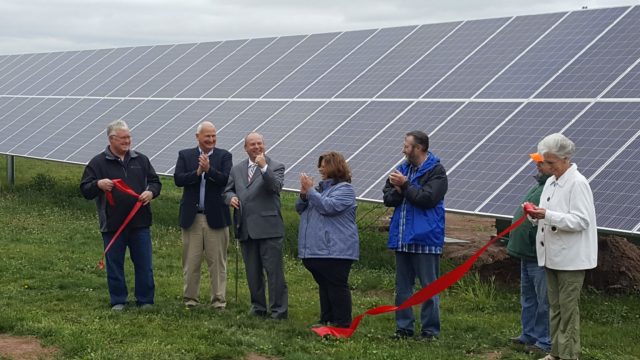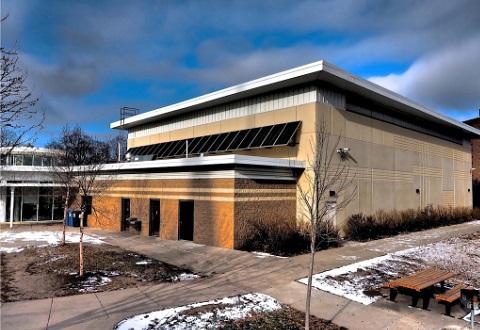Blog Archive - Samantha Donalds
Expanding Solar+Storage in Oregon
The Oregon Solar+Storage Rebate Program offers rebates to residential customers and low-income service providers who install solar or solar paired with energy storage. Rebates are issued to customers through the Oregon Department of Energy’s (ODOE) approved contractors, who pass the full amount of the rebate on as savings to their customers. Homeowners are eligible for…
Expanding Resilient Power in Maryland
The Maryland Energy Administration resilient power initiatives are helping Maryland organizations support their operations, protect communities, enhance sustainability, and achieve energy affordability. The Resilient Maryland Program provides funds to help pay for feasibility analyses, preconstruction analysis, and capital funds for the development and installation of microgrids, resilient facility power systems, and resiliency hubs for Maryland…
Washington State’s Roadmap to 100% Clean Energy – Leading with Equity and Public Participation
The State of Washington’s 2021 State Energy Strategy (SES) provides a roadmap for Washington to meet its critical and ambitious energy and climate goals: transitioning to 100 percent clean electricity by 2045 and reducing greenhouse gas emissions in accordance with climate science. The SES was notable for the State Energy Office’s efforts to combine extensive…
Connecticut’s Green Liberty Bonds: Finance Innovation and Public Participation in Clean Energy
The Connecticut Green Bank has created Green Liberty Bonds, a new type of green bond from which the proceeds are invested in projects that confront climate change in Connecticut. Modelled after the Series-E War Bonds of the 1940s, the bonds are structured to be purchased by retail investors, through lower-dollar denominations, enabling ordinary people to…
Decarbonizing Multifamily Affordable Housing Developments in New York State
The New York State Energy Research and Development Authority (NYSERDA) and New York State Homes and Community Renewal (HCR) partnered to accelerate the decarbonization of multifamily affordable housing developments in New York State. The Clean Energy Initiative (CEI) provides a replicable and scalable model to accelerate the decarbonization of affordable housing. The combined budgets and…
California’s 2022 Energy Code: Leading the Country in Decarbonizing the Building Sector
The California 2022 Energy Code for newly constructed and renovated buildings blazes a trail for states and local governments seeking to decarbonize the building sector aggressively, feasibly, and cost-effectively. The updated code, adopted by the California Energy Commission (CEC) in August 2022, encourages electric heat pumps, establishes electric-ready requirements for new homes, and strengthens ventilation…
Solar for Manufactured Homes: The Next Frontier for Energy Equity
There is a growing movement in the clean energy field to bring the benefits of renewable energy to low- and moderate-income communities. A new report by the Clean Energy States Alliance explores the opportunities and challenges of bringing solar to an often-overlooked market that is ripe with potential: manufactured homes. Manufactured homes, formerly referred to…
Michigan Solar Communities: Using a Community Solar Model to Expand Solar Access to Low- and Moderate-Income Communities
The Michigan Department of Environment, Great Lakes, and Energy’s (EGLE) Low- to Moderate- Income Access Program uses a community solar model to enable customers to access solar, obtain weatherization services, and save on their electric bills. The program represents a close partnership between two local electric utilities (Cherryland Electric Cooperative and the Village of l’Anse…
The MPRB Solar Demonstration Project: A Unique Collaboration Brings Solar to Diverse Communities
The MPRB Solar Demonstration Project, supported by Xcel’s Energy Renewable Energy Development Fund, installed 200 kW of solar PV in the Minneapolis parks system to model the incorporation of renewable energy into public amenities.
Oregon’s Renewable Energy Development Grant Program: Using Tax Credits to Leverage Private Investment
The Oregon Department of Energy’s Renewable Energy Development Grant Program promotes investment in and development of renewable energy projects by providing a grant up to $250,000 for businesses, organizations, public bodies, schools, nonprofits, and tribes that install and operate a renewable energy system that produces electric energy.
Browse by Project
- IRA & BIL Implementation
- 100% Clean Energy Collaborative
- Building Decarbonization and Clean Heating/Cooling
- Energy Storage Policy for States
- Energy Storage Technology Advancement Partnership
- Interstate Turbine Advisory Council
- Low- and Moderate-Income Clean Energy
- New England Solar Cost-Reduction Partnership
- Offshore Wind
- Renewable Portfolio Standards
- Scaling-Up Solar for Under-Resourced Communities
- Solar with Justice: Connecting States and Communities
- State Energy Strategies Project
- State Leadership in Clean Energy
- Sustainable Solar Education Project

